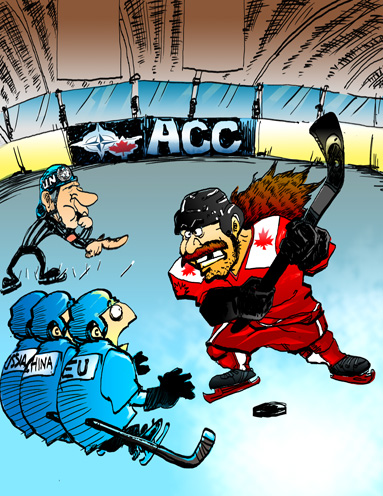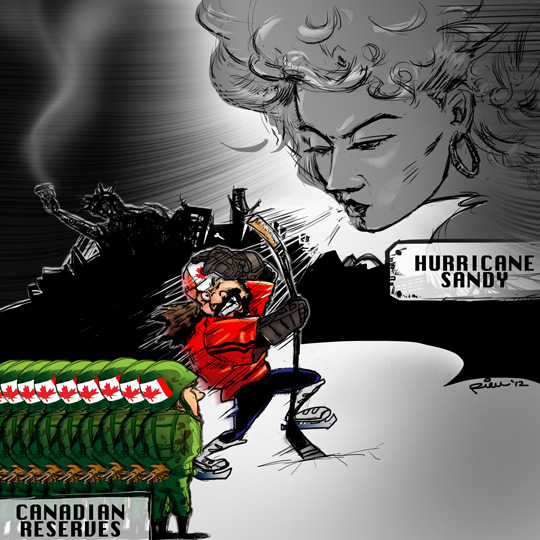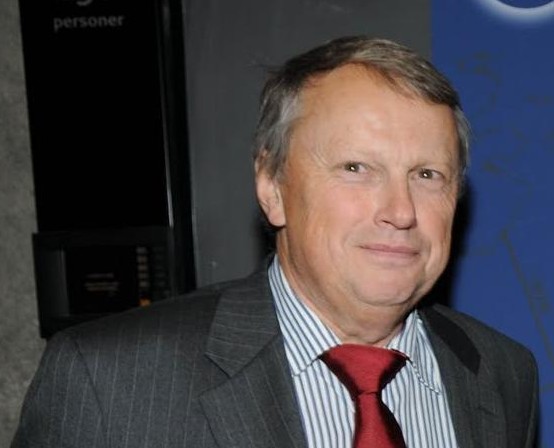This article is the final installment of a three part series on Canadian Foreign Policy. The initial background piece can be found here and the second installment here.
Approach to World Order
Canada’s approach to the liberal world order has been one of highly authentic and ambitious conceptions. During the ‘golden years’ of Canadian foreign policy − 1945-1953 − Canada was able to play a significant role in the founding of a series of critical multilateral organizations including the International Monetary Fund (IMF), the International Bank for Reconstruction and Development, the United Nations, the General Agreement on Tariffs and Trade (GATT), and what is known today as the North Atlantic Treaty Organization (NATO). Fast-forward to 1999, when Finance Minister Paul Martin invented the Group of Twenty (G20), which has now become the central forum for global economic governance. It is hard to believe that at the time, the Department of External Affairs − now called Department of Foreign Affairs and International Trade − saw little point in a country like Canada to recommend international action because of the department’s perception that a secondary power has limited influence in the world. Canada’s rich history in successfully advocating and implementing international institutions is not the work of a middle-power, but a major power whom other greater powers take seriously. In the past, Canada’s economic strength lent it international creditability, and that stability provided by the economy gave Ottawa freedom to concern itself with matters beyond the country’s borders. Currently, Canada is one of the few G8 countries whose economy is increasing while others, such as Italy, US, and Japan are in recession. More impressively, Canada has the lowest GDP-to-dept ratio out of all the G8 countries. Ottawa is in a strong position to pursue its own policies in the international system, and the view that it has major limitations on the global scene is ill-advised and not representative of Canada’s capabilities economically, diplomatically, and ideologically. With a strong economy, promotion of multilateralism, and a vibrant democratic and human rights record, Canada should pressure the international community and organizations to further delegitimize and destabilise rough regimes such as Syria and Iran, who pose a grave threat to international peace and security, not to mention their horrible track record of human rights violation and lack of gender equality. Ottawa is poised to make a dent to the liberal world order, to think contrary is dismissing concrete facts. Soon middle-power advocates and certain super-powers will not be able to deny Canada’s rise as a world energy superpower, so it would be in their best interest to accommodate and work with Ottawa to establish global peace and security.
A New Era in Canadian Foreign Policy
Like the golden goal, Canada’s golden years in foreign policy are far and few between. Unlike Canada’s hockey reputation, its international standing is lackluster. This can change, Ottawa’s hard stance on the Middle East and strong economic performance will help boost its reputation in the long run − major powers do not try to be balanced and appease everyone. While domestic politicians have criticized the loss of the temporary Security Council seat due to the rigid stance the government has taken toward the Middle East, this seat is irrelevant, because all the power is concentrated with the five permanent Security Council members, who have veto power and the final say. Illiberal governments, such as Russia and China, continue to protect tyranny from justice. The UN has failed to protect the most vulnerable. With this in mind, Canada must stand by its principles and condemn countries that violate international laws, regardless of UN support. It must work with NATO to uphold R2P, and intervene if necessary to protect innocent civilians and our allies who may be in danger from these rogue states. The Canadian hockey team has never backed down, and neither should the Canadian government. Canada’s dominance on the ice should be used as an exemplar for Canadian politics. Ottawa has the capabilities to promote the Canadian agenda to the world: global governance, multilateralism, multiculturalism, human rights, and democracy. As Canadian political scientist John Holmes once put it, “The first priority of Canadian defense policy is not and has not been for a century, the defence of Canada…but the defence of an international system favorable to our security and survival.” If this international system no longer shares Western ideals and favours tyranny and aggression over peace and security, this threatens Canadian security and survival. In that case, Canada should look elsewhere to spend its money and resources on.




